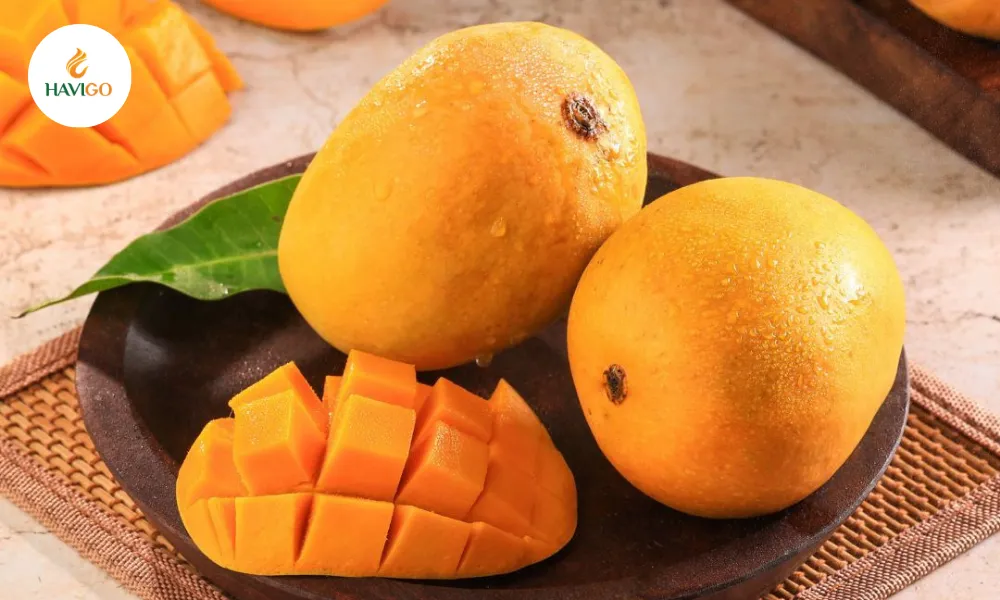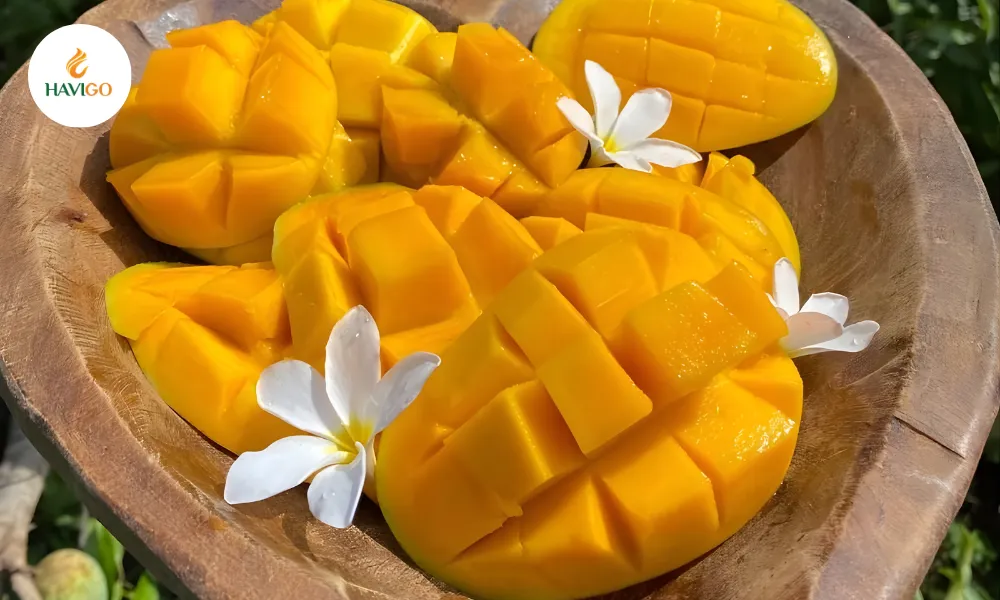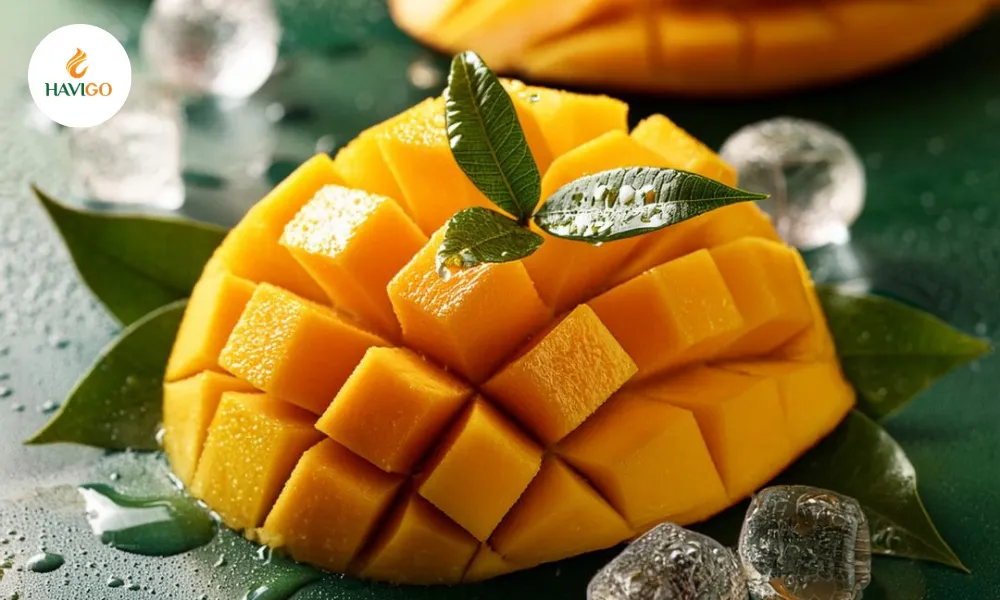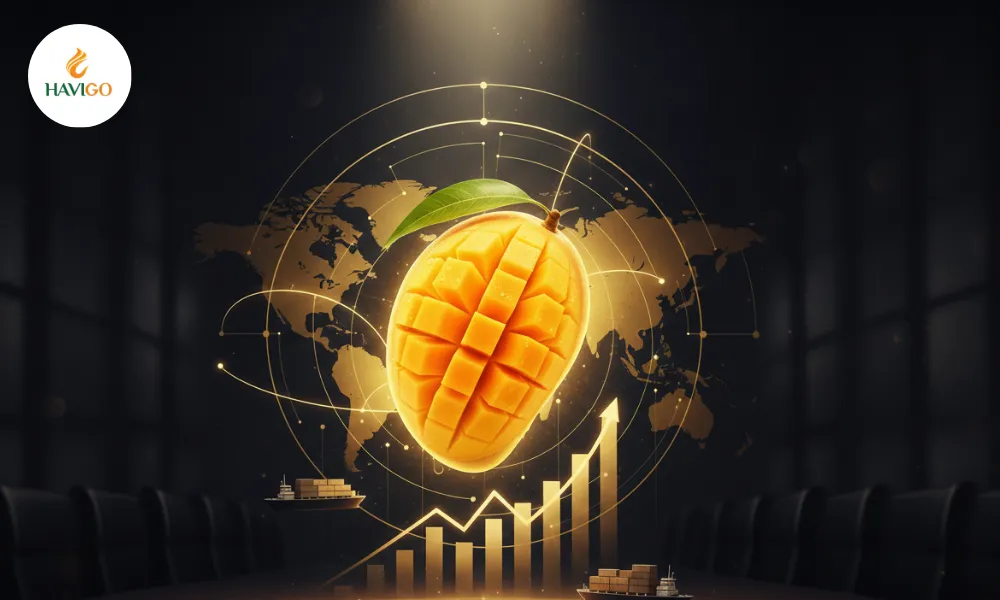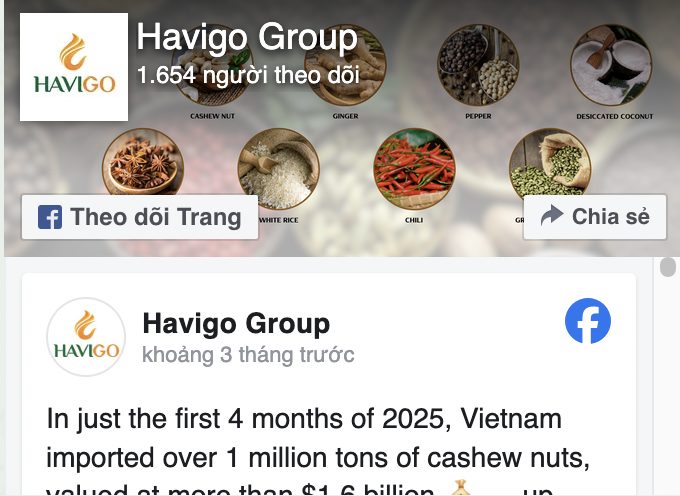Due to different drying process, robusta and arabica coffee require different ripeness rate when being harvested. It is important to achive the right flavor of coffee beans. In this post, we will find out the ripeness of coffee beans between robusta and arabica coffee beans.
1. Robusta and Arabica Coffee
Vietnam is fortunate to grow both types of coffee beans because of the perfect climate and growing conditions. For instance, the provinces of Lam Dong, Dak Lak, and Son La produce premium coffee beans. What distinguishes Arabica from Robusta, then?
Robusta Coffee Beans
Arabica plants are not as resilient or hardy as robusta coffee trees. They are easier to grow because they can tolerate more severe environmental conditions. Thus, these beans grow well in warmer climates and at lower elevations. They frequently flourish in the Central Highland of Vietnam.
Flavor profile: The robust flavor of robusta beans is well-known. They have a higher caffeine content, usually 2.7%. They have a strong, bitter flavor with earthy undertones of dark chocolate and nuts, which is a result of their higher caffeine content.
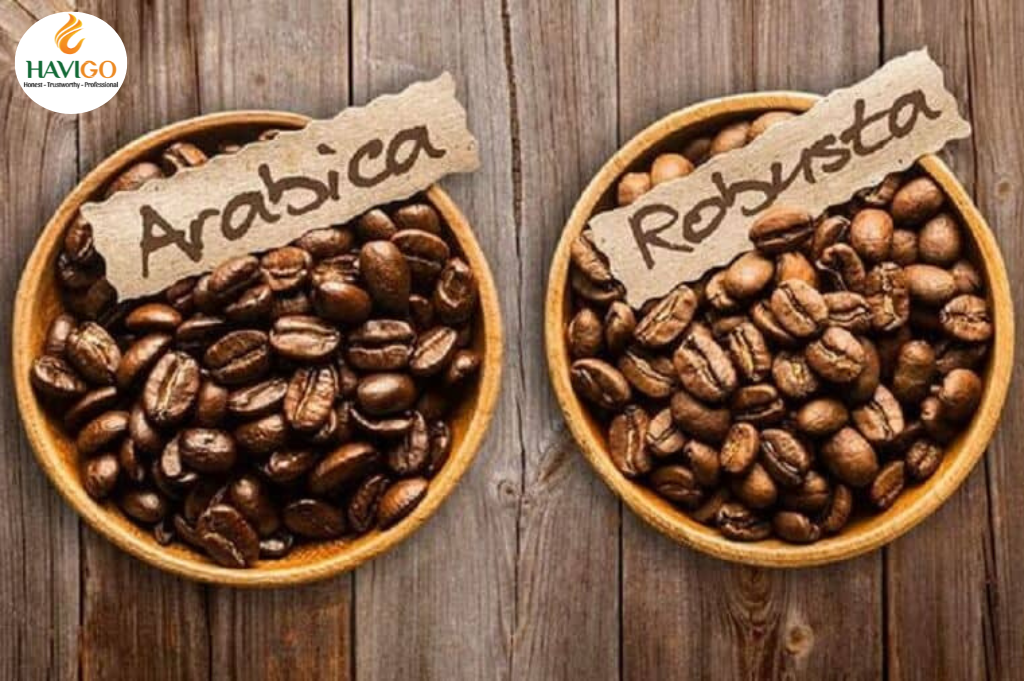
Arabica Coffee Beans
Arabica plants need particular conditions and are more delicate. They flourish in cooler climates at higher elevations (600–2000 meters). Son La is the well-known area for Arabica plant cultivation. Specialty coffees are frequently linked to these beans.
Flavor profile: Arabica beans usually contain 1.5% caffeine, which is less than other beans. As a result, the taste is milder and smoother due to the reduced caffeine content. With hints of chocolate, sugar, and occasionally fruits or berries, they provide a sweeter, more complex flavor. It is preferred by people who value a mild, fragrant beer.
2. Dry Processing & Ripeness of Robusta Coffee Beans
Farmers spread ripe coffee cherries out on expansive patios in the sun as part of the dry processing method (natural processing). To guarantee quality, there should be at least 70–75% ripe robusta coffee fruits. The fruit, including the layer, flesh, and layer surrounding the coffee bean, is dried out by the sun’s warmth after a few weeks. A thin layer of the coffee bean is visible once the fruits have dried. This long drying time gives the beans a distinctive, strong flavor by allowing the fruit’s natural sugars and flavors to seep into them.
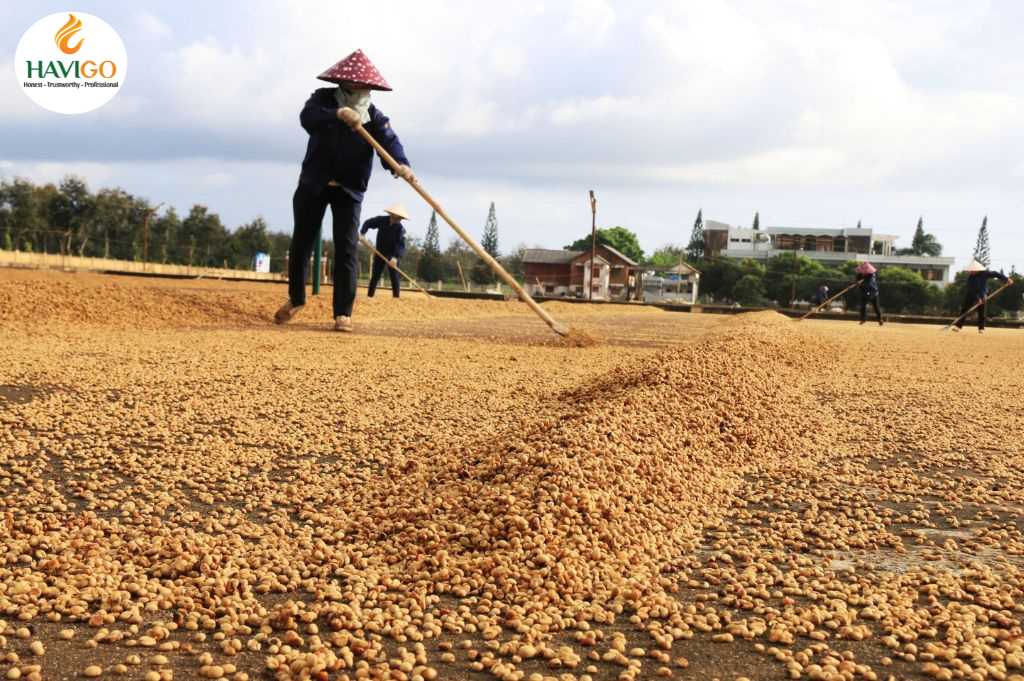
We should be aware of 90% of Robusta coffee beans are dry processed. Coffee beans that are naturally processed are renowned for their earthy undertones, full-bodied character, and strong fruit notes. They occasionally have funky or winey qualities. It is evidence of the impact of heat and sunlight on the distinct flavor of Robusta green coffee beans during the drying process.
3. Wet Processing & Ripeness of Arabica Coffee Beans
A different strategy is used by the wet processing method, also known as washed processing. Nearly all Arabica coffee beans undergo wet processing. First, the skin and the majority of the coffee fruit flesh are removed by farmers using pulp. The arabica coffee fruits’ ripe fruit rate must be at least 97%. The sticky layer is still present on the remaining beans, though. Thus, the farmers use tanks to ferment them. The mucilage is broken down by this fermentation, making removal simpler afterwards.
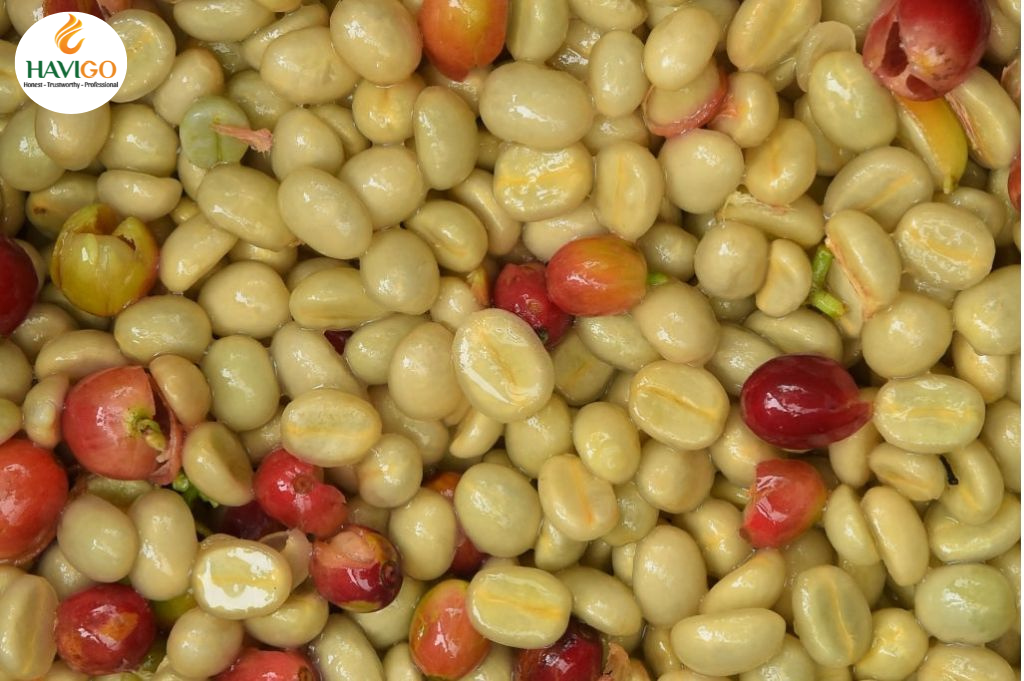
After fermentation, the coffee beans are carefully cleaned and allowed to dry in the sun on patios. The coffee profile is brighter, cleaner, and more acidic as a result of the wet processing. Additionally, it obviously gives coffee beans a softer, smoother flavor.
Understanding the dry and wet methods can help us know more about the impacts of processing on the flavor of coffee beans. The intense fruit notes and a full body come from dry-processing. On the other hand, wet processing brings about the favor of clean, bright acidity and a clear expression. Moreover, Robusta beans often undergo wet polishing for aesthetic reasons. So enjoying a cup of coffee is not a journey of flavor. It also contains knowledge and passion for these flavorful coffee beans.
About us
Havigo Company Limited operates in the field of agricultural export. We wish to bring high-quality Vietnamese agricultural products such as spices, rice, beans, and fruits… to the world. We supply you with high-quality products at the best price. If you find interested in importing this product, don’t hesitate to get in touch with us for better support via WhatsApp: +84 979 58 58 56.
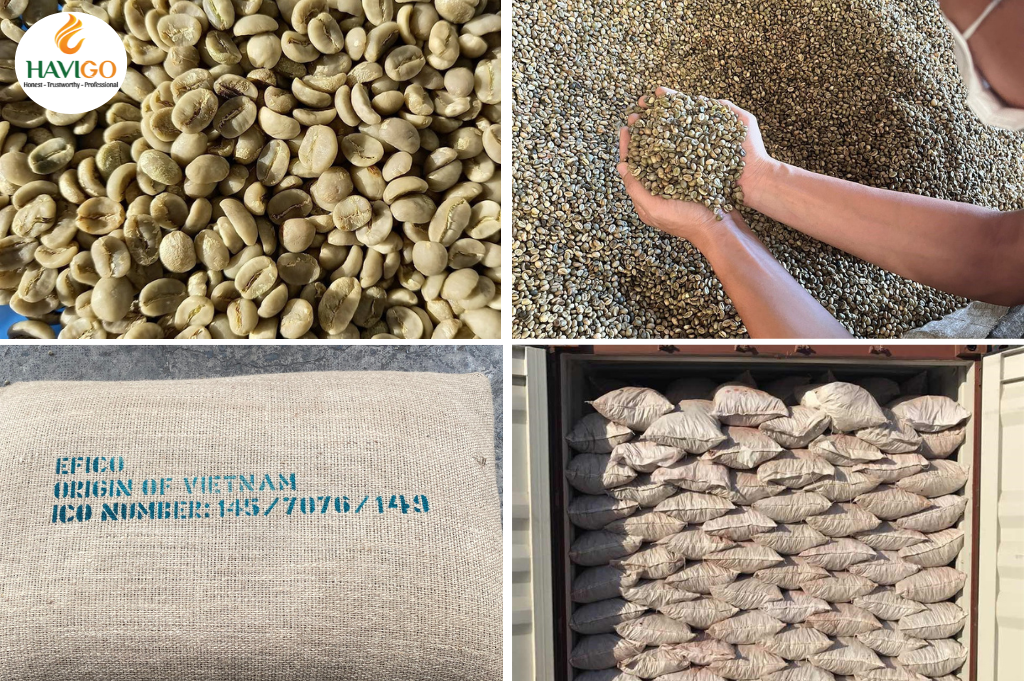
We are confident in our ability to deliver products that consistently meet the highest quality standards while offering competitive pricing within the market. Furthermore, we are committed to providing exceptional customer support throughout your entire experience. Please contact us for better support via WhatsApp: +84 979 58 58 56.

